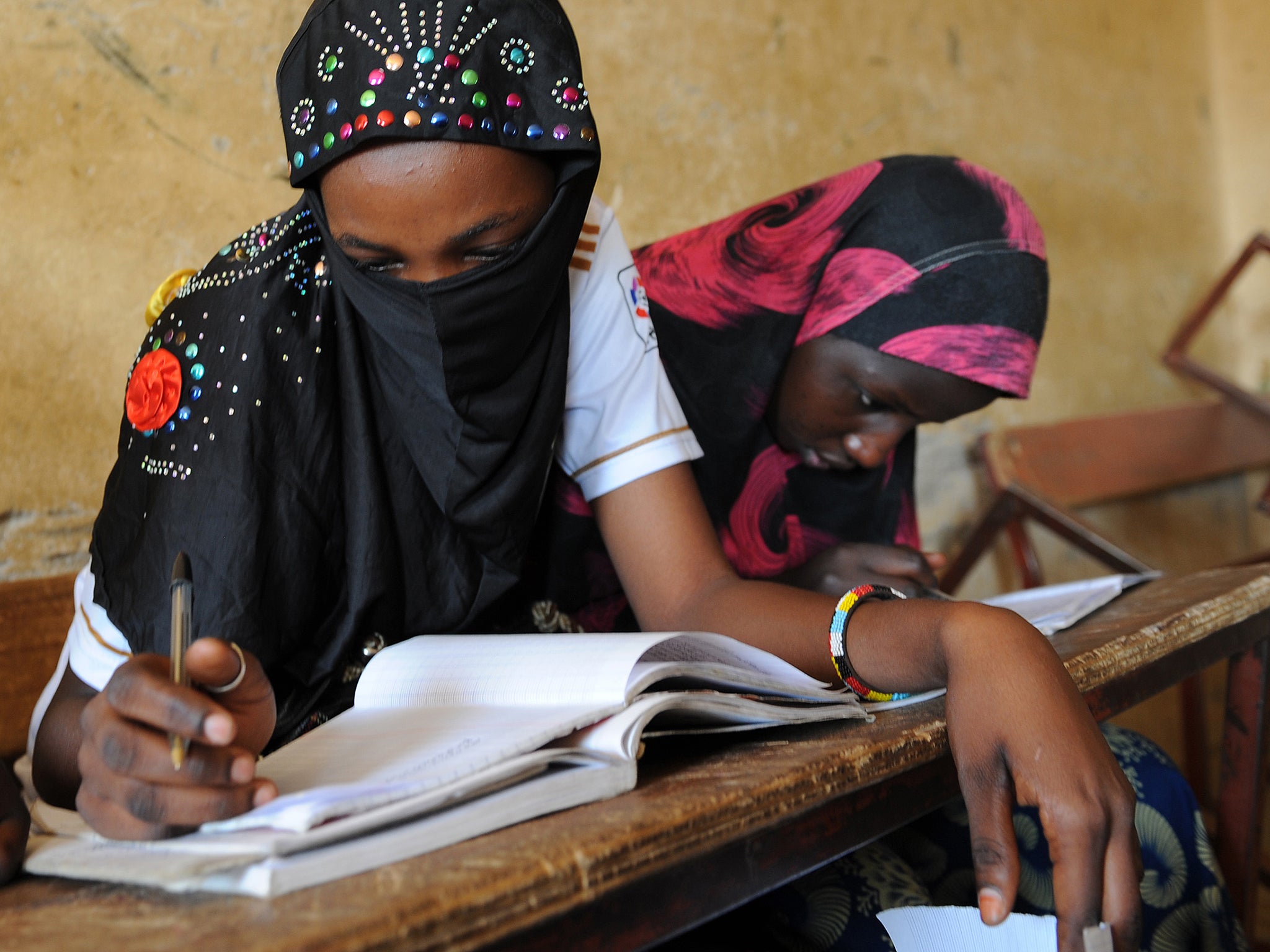Egypt bans girls from wearing hijabs to school - until they reach puberty
The country's education minister has argued that Islam does not require girls to wear the religious veil prior to puberty

Your support helps us to tell the story
From reproductive rights to climate change to Big Tech, The Independent is on the ground when the story is developing. Whether it's investigating the financials of Elon Musk's pro-Trump PAC or producing our latest documentary, 'The A Word', which shines a light on the American women fighting for reproductive rights, we know how important it is to parse out the facts from the messaging.
At such a critical moment in US history, we need reporters on the ground. Your donation allows us to keep sending journalists to speak to both sides of the story.
The Independent is trusted by Americans across the entire political spectrum. And unlike many other quality news outlets, we choose not to lock Americans out of our reporting and analysis with paywalls. We believe quality journalism should be available to everyone, paid for by those who can afford it.
Your support makes all the difference.Egypt has banned children from wearing hijabs to school.
Education Minister Moheb Al-Refaei has said that girls will no longer be allowed to wear the hijab to school.
Speaking in an interview, the Minister said that Islam did not require girls to wear the hijab until they reach puberty and so there was no need for them to wear the veil in primary school.
He did not specify the age point at which it would be permitted.
The wearing of religious veils in the country is a deeply divisive issue. Whilst many clerics believe it to be obligatory in Islam, some academics dispute this and argue that its roots lie in cultural tradition rather than having a theological basis.
In 1994, the Egyptian government revised school uniform legislation to forbid girls under the age of 12 from covering their hair. However, the law provoked fierce debate and accusations that the move was un-Islamic. The Supreme Court ruled the ban unconstitutional in 1996.
In March of this year, the issue gained national attention again when a teacher beat a girl and cut off a lock of her hair because she did not wear a hijab to class.
Join our commenting forum
Join thought-provoking conversations, follow other Independent readers and see their replies
Comments